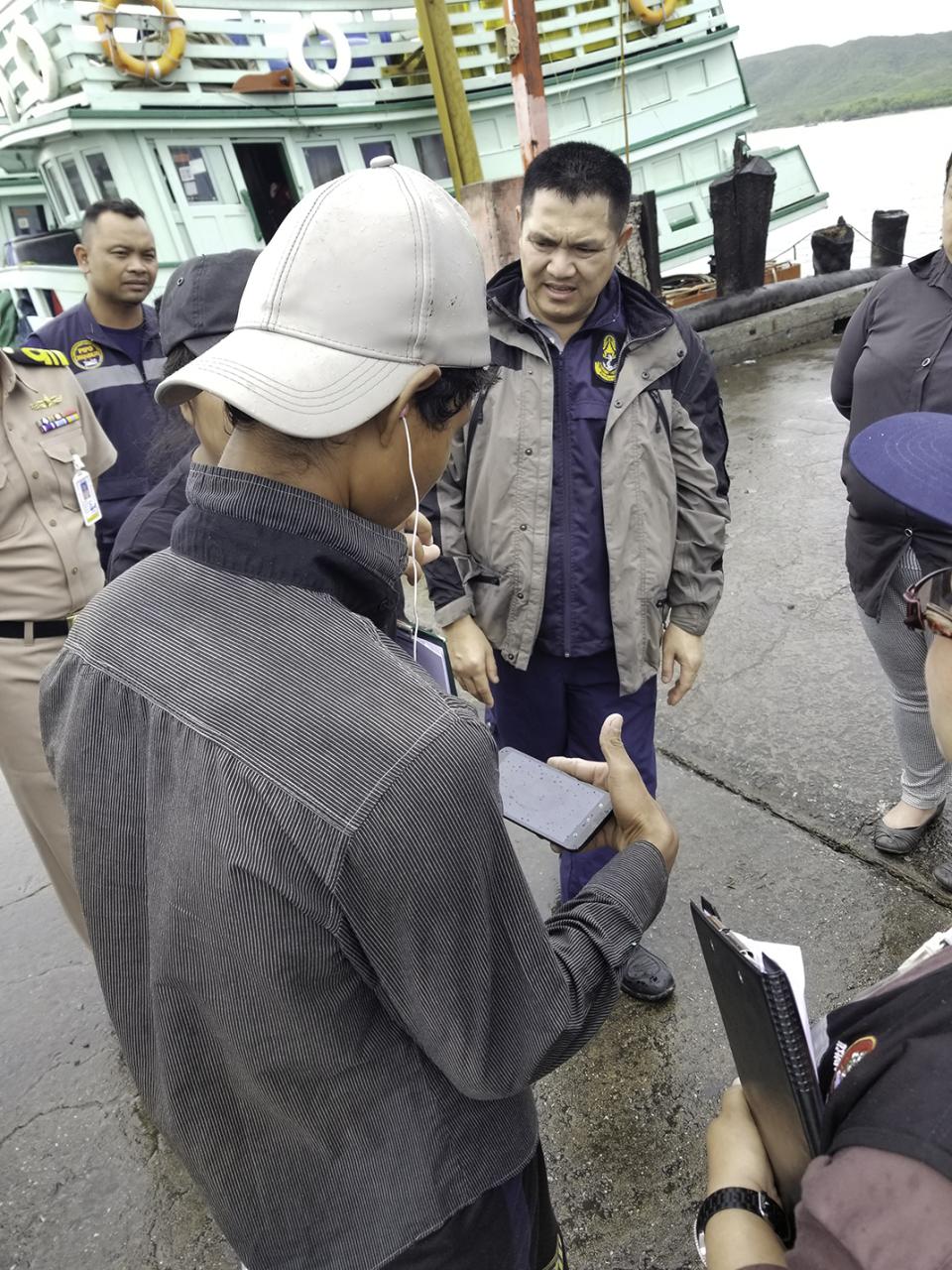
An estimated 90 per cent of Thailand’s seafood industry is comprised of migrant workers. Many of these workers face unfair recruitment processes, terms of employment, industry practices and working conditions. The United Nations University Institute in Macau embarked on a research project funded by Humanity United and The Freedom Fund, and in collaboration with The Mekong Club, to understand the role that digital technology can play to support frontline responders in identifying potential victims of forced labour and human trafficking.
On one of my first research trips to Thailand, I was lucky enough to take part in six focus group sessions across the country with a variety of participants in the anti-trafficking sector, including police inspectors, inter-governmental organizations, non-governmental organization (NGO) workers and survivors of trafficking. Our aim was to understand what problems the different stakeholders faced in victim identification and if there was a role that technology could play to help alleviate these problems. NGOs, police inspectors and inter-governmental organizations—who we collectively refer to as frontline responders—spoke about a two-step process in identifying victims. First is the initial screening interview, followed by further investigation if there were indications of exploitation. We chose to focus on the first step of this process, as the second step is more tightly aligned to government processes.
When asked how they perform the initial screening interviews, frontline responders mentioned that they receive calls for help using hotlines, Facebook groups or other online networks. At times, they also meet people as part of their regular outreach or inspection activities. While hotlines, chat groups and online networks provide the ability to reach more workers than physical in-person networks, some frontline responders spoke about the sense of frustration when they receive reports of abuse from potential victims but are unable to locate them to send help due to communication issues. They spoke of the emotional and psychological toll both on the workers themselves, but also on the frontline responders in these situations.
With this in mind, we turned our attention to the situation of in-person initial screening of workers, asking participants what problems they face in these situations. Across each of the focus groups, participants identified problems with communication, as workers often migrate internally or from neighbouring countries, and they do not speak the same language. Participants also noted that there is often a lack of training in the field, with different stakeholders being unfamiliar with the current patterns of exploitation to look out for. Finally, they noted that initial screening sessions take place in uncontrolled environments, so workers may be scared to answer questions truthfully, for fear of reprisals.
Based on this feedback, we developed Apprise, a mobile application to support communication between frontline responders and workers. While it is installed on the frontline responders’ phone, Apprise is ultimately a tool in the potential victims’ hands. When a frontline responder first meets someone who they wish to question, they hand them their phone and a set of headphones, and prompt them to use the app. The worker selects the language that they wish to listen to questions in (Figure 1(a)), and a video begins, describing the purpose of the app, how to respond to questions, and asking for consent to continue (Figure 1(b)). If the worker agrees, then a series of no/yes questions is asked, based on the sector-specific key indicators of labour exploitation and human trafficking (Figure 1(c)).
By using a minimalist design and a series of positively and negatively worded questions, we aimed to ensure that onlookers could not decipher the meaning of responses given by workers. At the end of the interview, a vulnerability rating is calculated to help the worker understand how vulnerable their work situation is. The app then gives them the chance to signal for help to leave the situation if they wish. The phone is then handed back to the frontline responder and a summary of the key indicators of exploitation, as well as the vulnerability rating, is presented to them (Figure 1(d)).
This information can be used by the frontline responder to direct further on-site investigations and to suggest next steps for them to take. Most importantly this summary screen also indicates if the worker is under age and if they would like help to exit their work situation. Initial screening responses are stored on the frontline responder’s phone and then automatically uploaded onto their online account when they next login with network reception.
Since March 2018 we have been piloting Apprise with frontline responders around Thailand. Through this process, we aim to identify best practices for the use of Apprise, as well as the various legal and cybersecurity implications related to the use of technology in supporting victim identification.
Within the seafood sector, we have been fortunate to partner with several key NGOs to evaluate the effectiveness of the app in Port-in Port-out (PIPO) centres (Figure 1(e)) and test under conditions similar to sea inspections. In our pilot sessions, one of the first questions we ask workers is if they prefer to be asked questions using the app or in person. Overwhelmingly, workers have shown a preference for using the app. The most commonly cited reason for this is that workers feel that their responses are more private and that they do not fear that anyone will hear what they’re answering. On top of this, workers have said that using Apprise allows them to feel more in control of the screening process, including rereading questions when they are unsure exactly what is being asked and taking their time in responding to questions.
Frontline responders have been very excited about the ability to interview workers with whom they would otherwise not have been able to communicate. They also showed great interest in the vulnerability rating, and the direction it provides them for any further on-site investigations.
By analysing responses received on Apprise, policymakers could better detect sector and location specific patterns of exploitation. This information could be used to craft evidence-based policies to combat these exploitative practices, as well as guide law enforcement strategies. Frontline responders have suggested that they could use Apprise to help identify hotspots and target awareness raising campaigns within communities that they work. Apprise can be a useful tool for frontline responders and policymakers alike.
This article was originally published on Delta87.org.
Suggested citation: Hannah Thinyane., "Screening Migrant Workers in Thailand with New Technology," UNU Macau (blog), 2019-01-21, https://unu.edu/macau/blog-post/screening-migrant-workers-thailand-new-technology.

